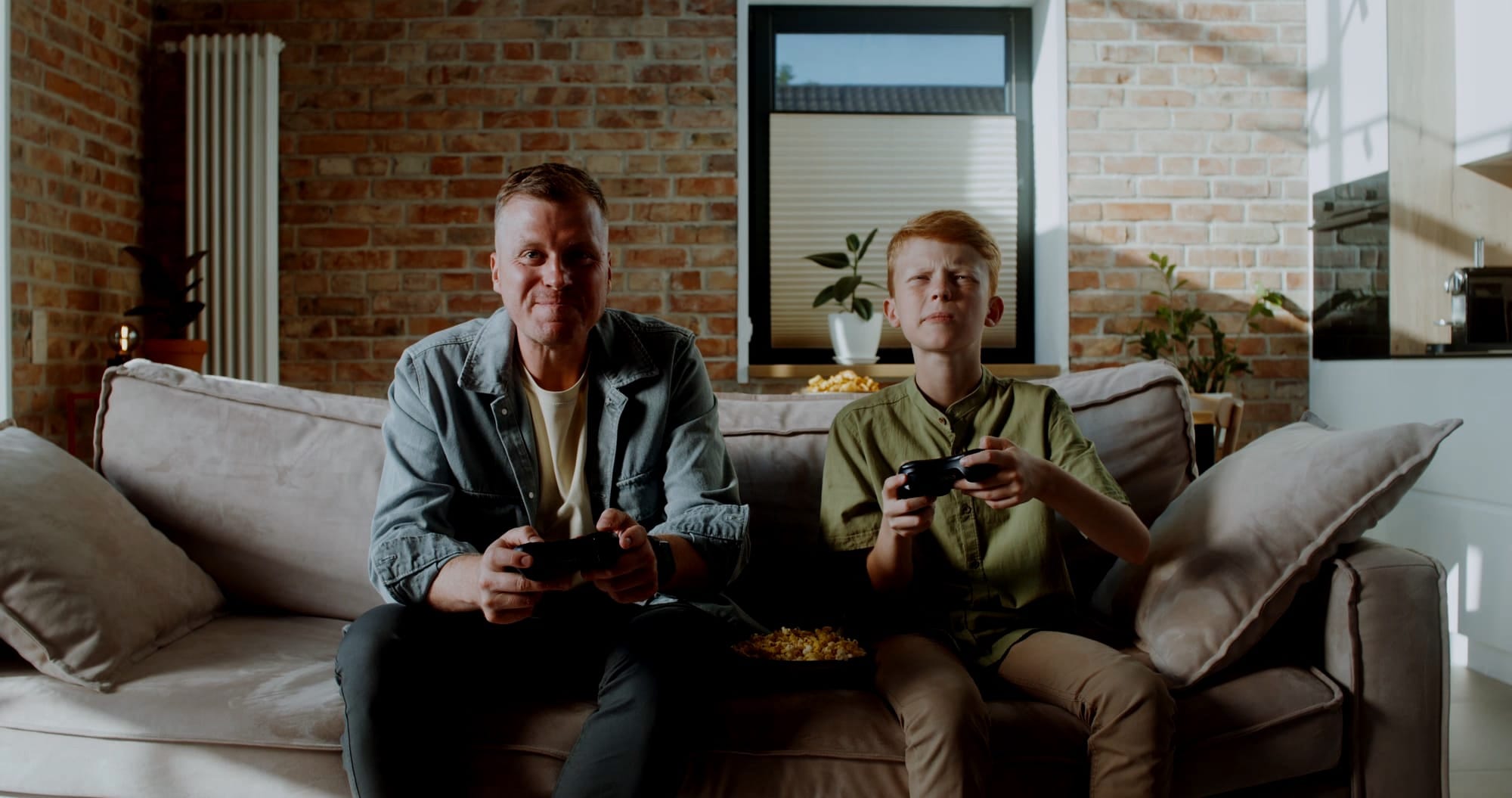Dragon Age: The Veilguard Review - A Silver Gamer's Honest Take
Looking for an honest Dragon Age: The Veilguard review? We dive into gameplay, story, romance, and accessibility to see if BioWare’s latest RPG lives up to the legacy. From combat changes to companion drama, here’s how it plays—especially for mature and returning gamers.
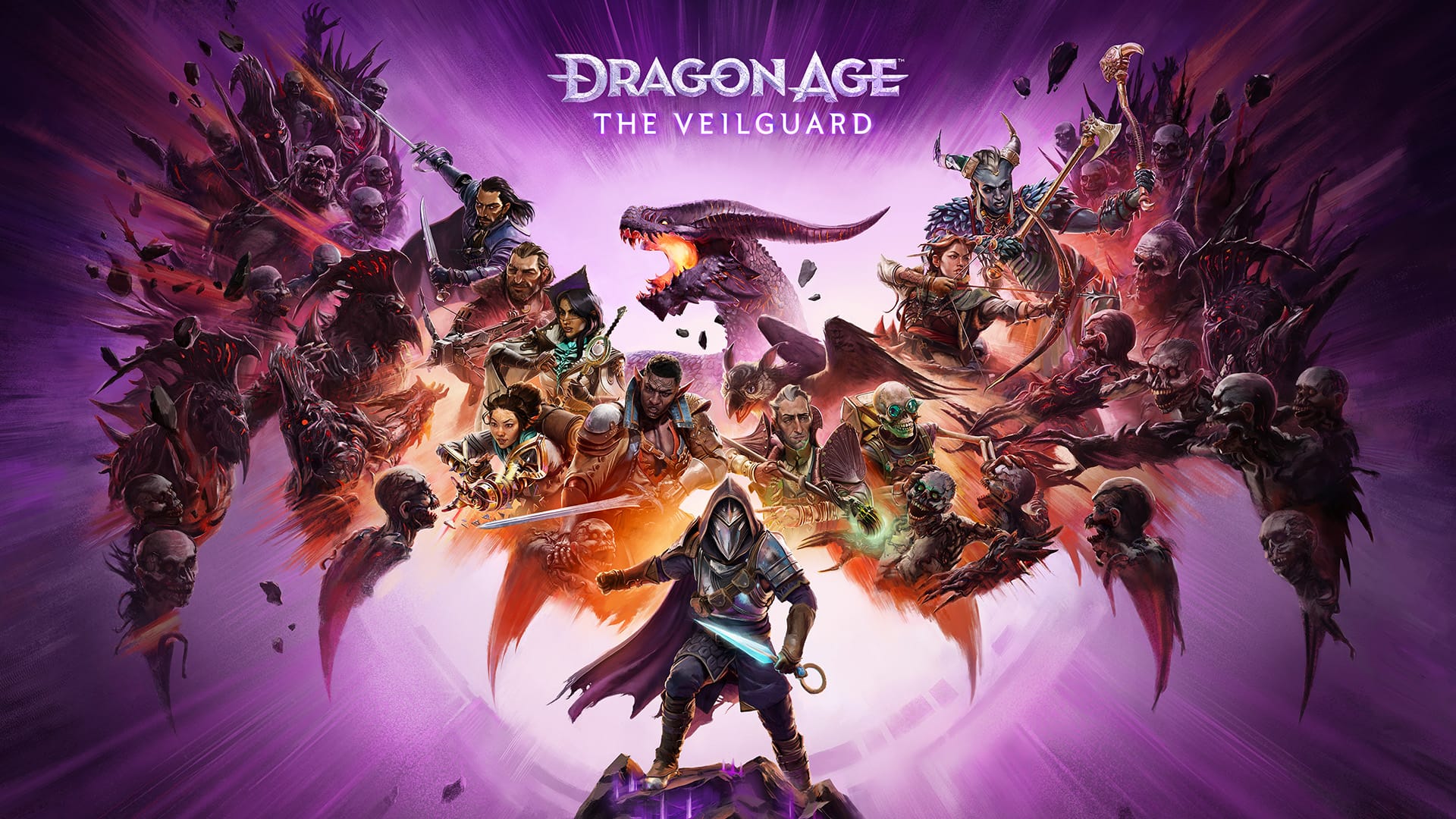
Affiliate/Advertisement Notice: This article contains affiliate links and sponsored content. We earn a small commission when you purchase through these links, which helps us keep Silver Gamers running.
BioWare's Latest Title Proves You Can Teach an Old Dragon New Tricks (Even If Some Fans Won't Like Them)
There aren't many developer studios as legendary in the roleplaying genre as BioWare, and the Dragon Age series has always held a special place in my heart. After waiting what felt like an eternity (a full decade since Inquisition!), I finally dove in when Dragon Age: The Veilguard landed on Xbox Game Pass in August. What an adventure it's been—though not always in the ways I expected.
The Elephant (or Dragon) in the Room
Let's address the controversy head-on, because if you've been anywhere near gaming forums, you've heard the complaints. The game's more colourful art style has ruffled feathers. You can't play as an outright villain anymore. The romance options are more inclusive than ever, with LGBTQ+ characters prominent throughout. And perhaps most contentiously, you can only import three major decisions from previous games—a far cry from the extensive world states we used to craft.
Here's my take after 60+ hours: some of these changes are barely felt, others are a welcome evolution, but a few are genuinely puzzling choices. Is it still Dragon Age, though? Absolutely. Is it the Dragon Age you remember? That very much depends on which Dragon Age you're remembering…
A Story Worth Telling (Eventually)
The setup is classic Dragon Age drama: Solas, the Dread Wolf and former companion from Inquisition, is about to tear down the Veil between our world and the demon-filled Fade. As Rook (your customised character) you interrupt his ritual and accidentally release two ancient elven gods who make Solas look like a reasonable dinner guest. Whoops!
The narrative takes its sweet time finding its footing—the first 10 hours feel like an extended tutorial disguised as world-building. Once it clicks (around the time you've assembled your full team of seven companions) the story transforms into something special. The final act, in particular, delivers emotional gut-punches that rival anything BioWare has done before. Just be warned: that final mission is a 2-hour marathon with no save points. Plan accordingly, and maybe warn your partner you'll be unreachable for a while…
Character Choices: Lots of Options, Less Freedom
Creating Rook offers impressive cosmetic variety—my slightly greyish necromancer with Far Eastern influences came together beautifully. After that I spent nearly an hour perfecting a warrior's features. The character creator is genuinely inclusive, with body types, pronouns, and identity options that try their best to reflect modern sensibilities.
But here's the catch: Rook's personality is more defined than previous Dragon Age protagonists. You're not the blank slate of Origins or even the somewhat-flexible Hawke. Your dialogue choices essentially boil down to professional, sarcastic, or emotional—but all fundamentally heroic. If you enjoyed playing as a complete bastard in previous games, you'll be disappointed. Rook is inherently good-natured, just with different flavours of good.
Unlike in other Roleplaying games, character choices can be reversed, should you feel the need. All skill points can be refunded via the skills menu, while your appearance can be changed in the lighthouse (Via the mirror in Varrics room - yes, really).
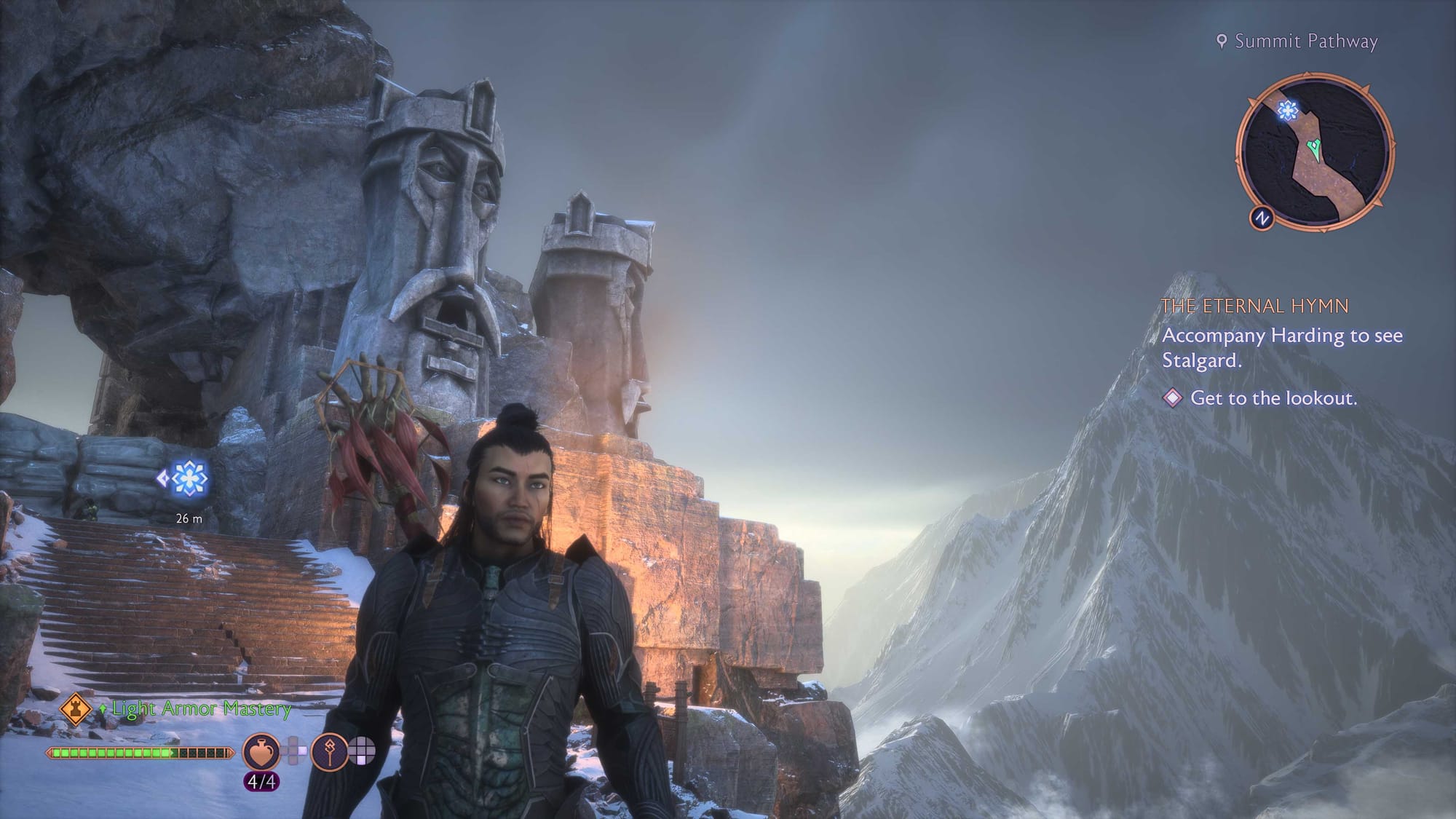
Combat: When Turn-Based Fans Learn to Dodge-Roll
Gone are the tactical, pause-heavy battles of old. Veilguard embraces real-time action combat that initially had my aging fingers in a twist. You directly control only Rook, while your two companions act autonomously (though you can trigger their abilities via the ability wheel, which thankfully pauses combat).
Like most modern titles, Dragon Age: The Veilguard embraces the newer style of parrying mechanics, where the player needs to hit a dedicated but at right time in order to prevent damage. Personally, I hate this mechanic and I’m very bad at it. I mostly ignored it and tried to dodge-roll my character out of sticky situations.
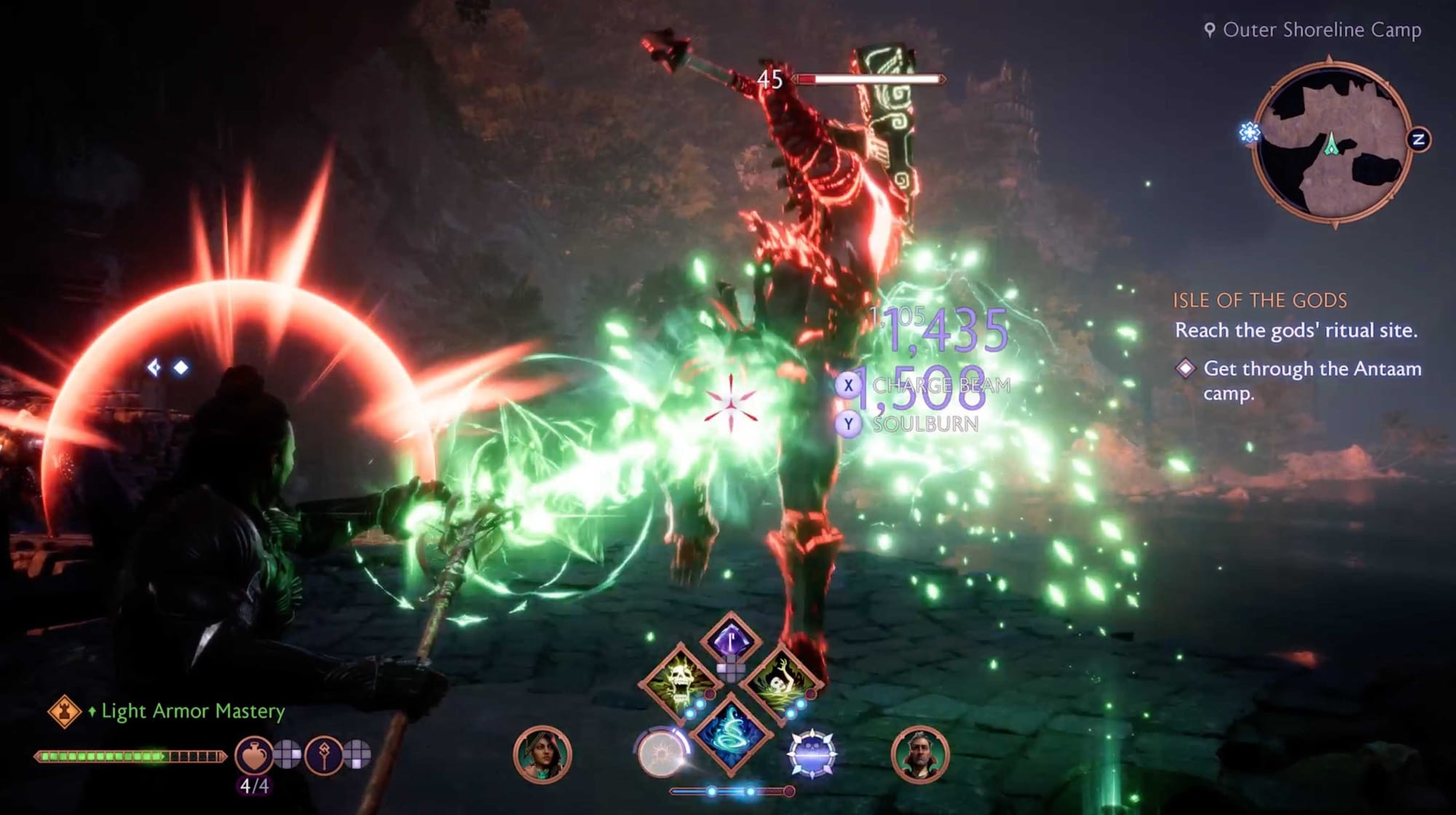
The good news? The accessibility options are genuinely impressive. You can tap instead of hold for UI interactions, adjust enemy damage and aggression, modify parry timing windows, and even enable "prevent death" mode if you just want to enjoy the story. After tweaking these settings, combat became manageable and even enjoyable for these ageing reflexes.
Each of the three classes—Warrior, Mage, and Rogue—plays distinctly. My mage felt powerful but fragile, requiring careful positioning. My second playthrough as a warrior was more forgiving, letting me wade into combat with less precision required. The skill trees are satisfyingly deep without being overwhelming, and crucially, everything is reversible—you can respec at any time without penalty.
Companion Therapy Sessions
Veilguard leans heavily into companion relationships, perhaps more than any previous Dragon Age. Between missions, you'll spend considerable time at your base, the Lighthouse, having deep conversations about feelings, fears, and futures. This can easily get a bit exhausting!
If the idea of managing seven people's emotional baggage while saving the world appeals to you, you'll love this aspect. If you prefer your RPGs with less feelings-talk and more demon-slaying, you might find yourself clicking through conversations. Personally, I found it endearing—though I'll admit to occasionally thinking "Can we discuss your childhood trauma AFTER we prevent the apocalypse?"
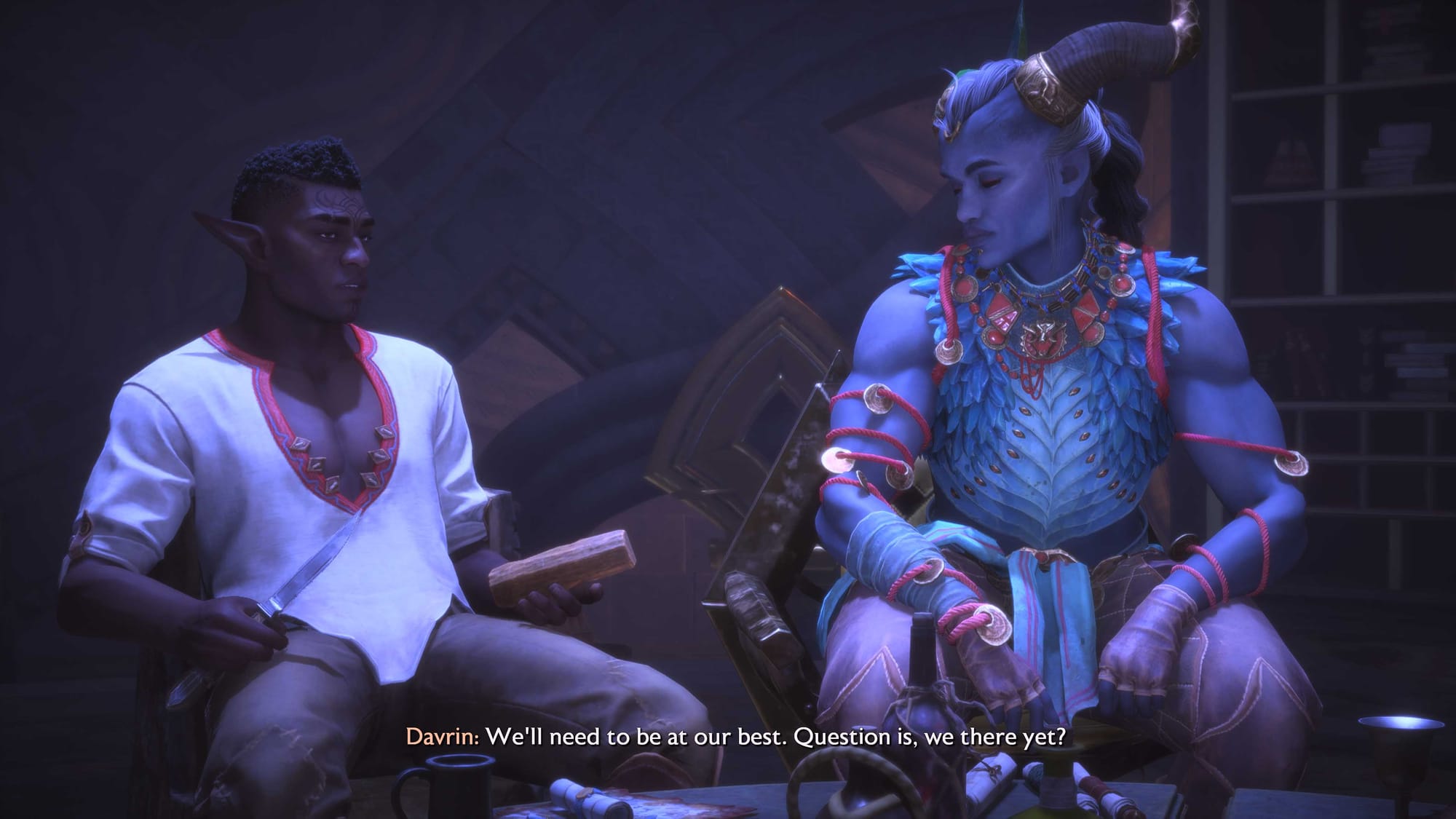
Every Member of Your Team:
- Harding: The beloved scout from Inquisition, now sporting unexpected magical abilities
- Neve: A cynical detective fighting for a better Tevinter
- Emmrich: A charming necromancer with a skeleton assistant named Manfred
- Taash: A dragon hunter struggling with identity
- Davrin: A Grey Warden with a baby griffon (yes, really)
- Bellara: An anxious elf with ancient tech expertise
- Lucanis: An assassin possessed by a demon (it's complicated)
Romance: Slower Burns Than a British Sunday Roast
Romance in Veilguard is a slow, deliberate affair. Unlike Origins' infamous tent encounters after three conversations, relationships here develop over the entire game. The writing is mature and thoughtful, treating romance as emotional connection rather than conquest.
The game handles LGBTQ+ relationships with genuine care—not as checkboxes but as natural parts of these characters' identities. You can romance any companion regardless of Rook's gender, though you'll need to commit eventually. No polyamorous shenanigans here—when you choose, it's permanent.
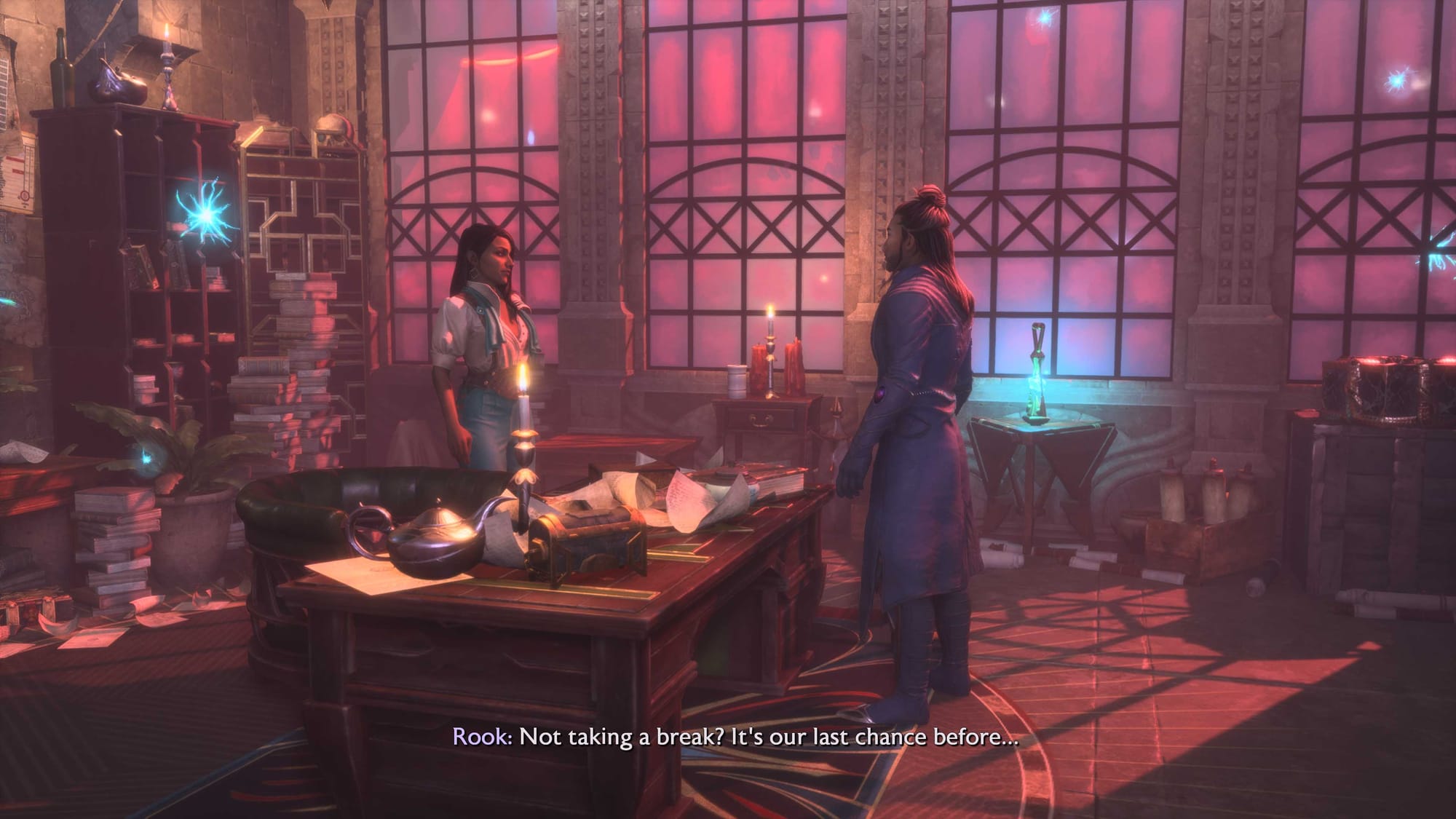
World Design: Focused Areas Over Endless Open Worlds
After Inquisition's overwhelming open world filled with fetch quests and collection padding, Veilguard's more focused approach feels refreshing. Areas are large enough to explore but contained enough to not feel overwhelming. Each zone—from a gothic Necropolis to the sunny Rivain coast—has distinct character and purpose.
The level design cleverly guides you without feeling restrictive. You'll rarely get lost, but there's enough off-the-beaten-path content to reward exploration. Hidden chests, optional bosses, and environmental puzzles provide variety without becoming checkbox chores.
The Visuals: Pretty Faces, Readable Text
Visually, Veilguard is stunning—when it wants to be. Character models are exceptional (you can see individual beard hairs!), and major story moments look spectacular. However, the shift to a more stylised, colourful art direction from Dragon Age's traditionally grim aesthetic takes adjustment. It's less "Dark Fantasy" and more "Sparkly Fantasy with Occasional Darkness."
Crucially for us Silver Gamers, the text is actually readable without squinting, UI elements can be resized, and subtitles are fully customisable with adjustable size, speaker names, and background opacity. The game even includes visual threat indicators showing incoming attacks—a godsend when your peripheral vision isn't what it used to be.
Performance on a mid-range Gaming PC and Series X was smooth, with only occasional texture pop-in. Loading times are merciful—death means a quick respawn, not a coffee break.
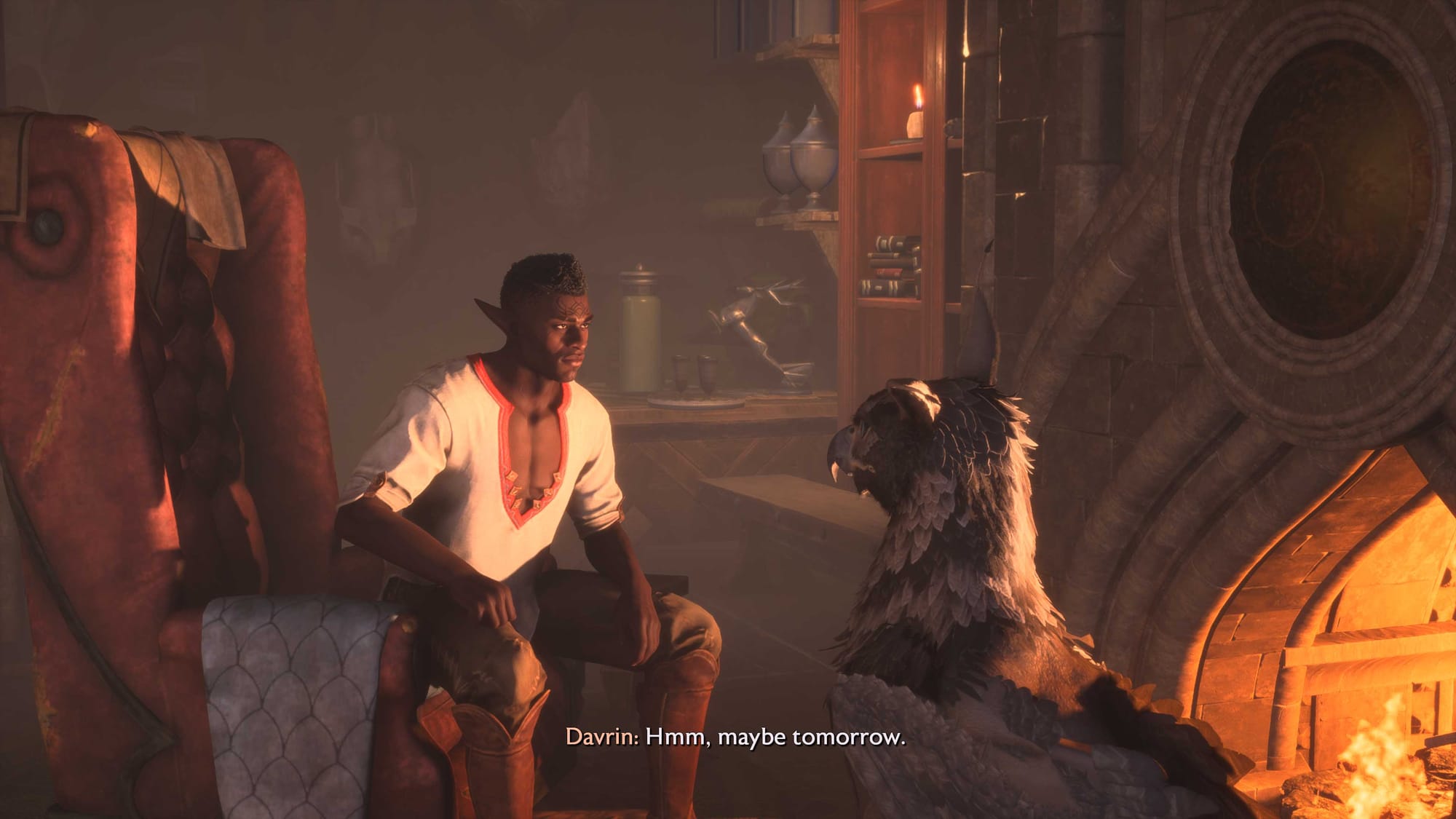
Time Commitment: Between a Movie Marathon and Skyrim
Yes and no. The pacing is generally respectful, with frequent autosaves and the ability to save manually almost anywhere. Side quests feel meaningful rather than padding, often revealing companion backstories or world lore worth knowing. The main campaign runs 40-50 hours if you engage with companion quests (which you should), stretching to 60+ for completionists.
However, some story missions run long without save opportunities. The aforementioned final mission is a 2-hour commitment, and several late-game sequences lock you in for 45+ minutes. For gaming parents or those with unpredictable schedules, this can be frustrating.
My advice: save major story missions for when you know you won't be interrupted.
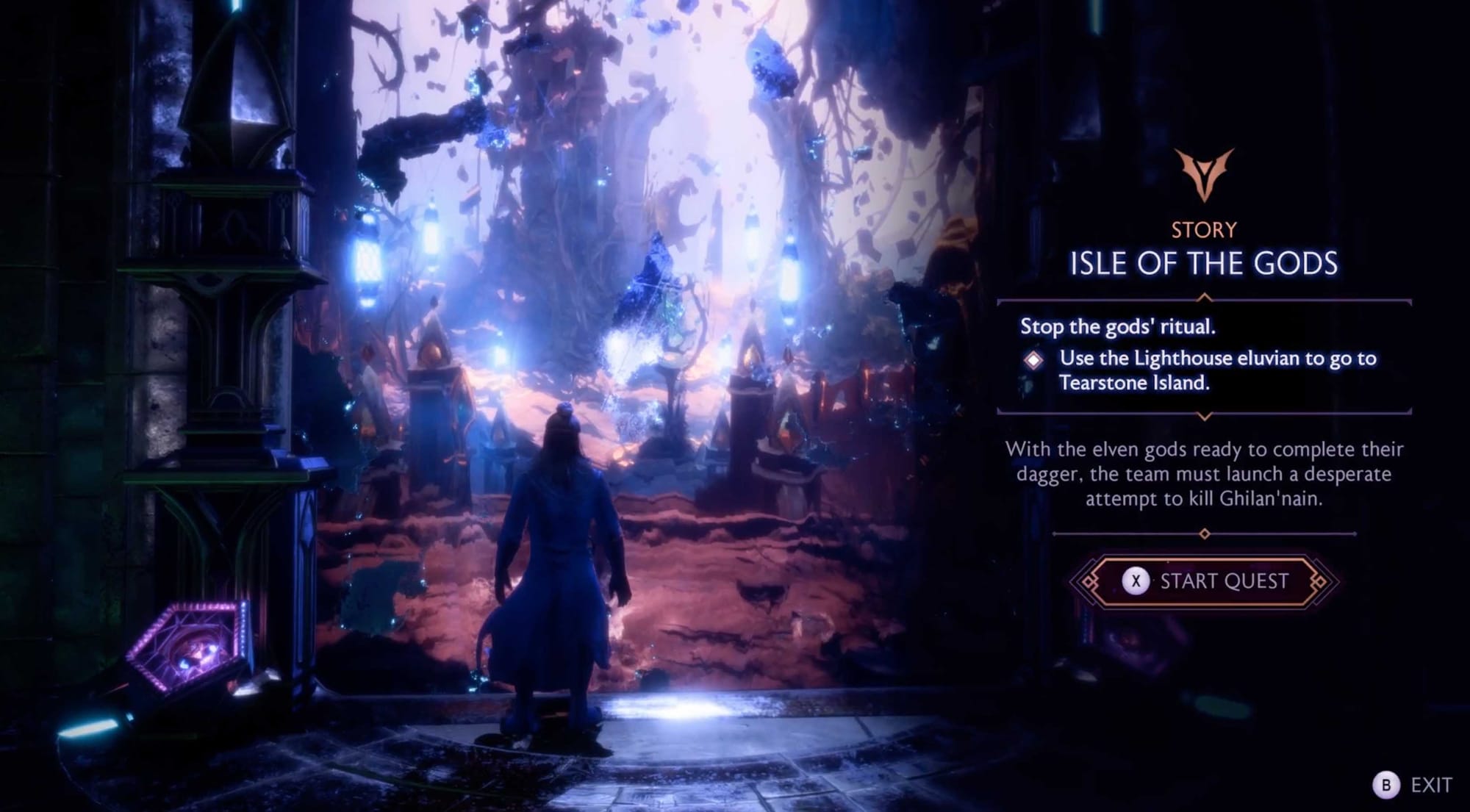
Accessibility
With 55 different accessibility options across visual, auditory, controls, and gameplay categories, Veilguard sets a new standard. Beyond difficulty settings, you can:
- Adjust parry timing windows and combat speed
- Turn off motion blur, reduce camera shake, and adjust field of view
- Enable persistent aim dots for those who can't hold aim buttons
- Add audio cues for visual-only information
- Remap every button on both controller and keyboard
I particularly appreciated the "prevent death" option that lets you experience the story without combat frustration, and the ability to pause anytime outside of cutscenes. These aren't crutches—they're acknowledgments that players have different needs and abilities. I sincerely hope that other Game Studios take notes!
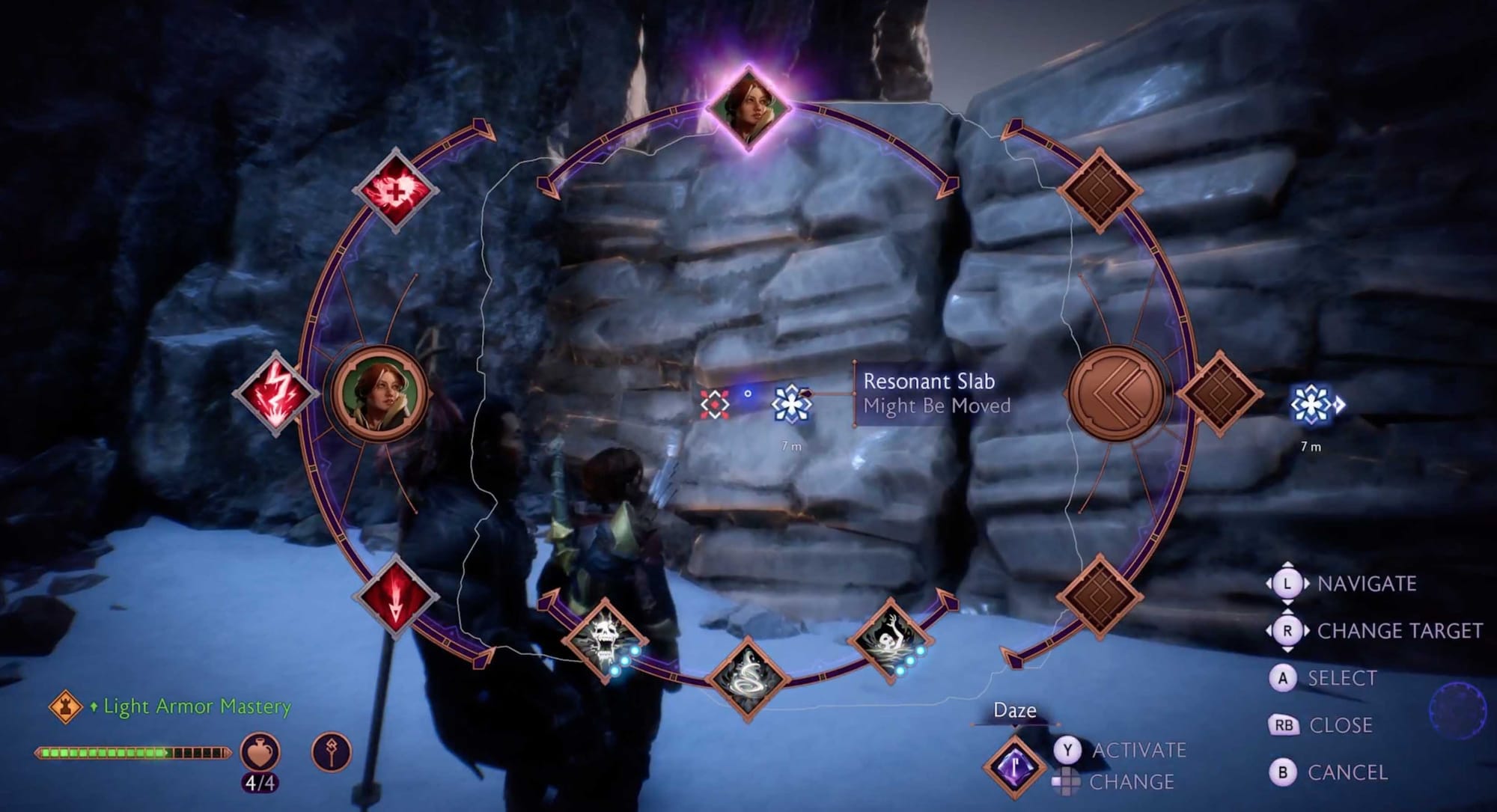
Price & Availability
At $59.99 / £49.99 for PC or $69.99 / £59.99 for console standard editions (deluxe editions with premium cosmetics run $99.99 / £79.99), Veilguard originally represented a significant investment. But here's the thing: It hit Xbox Game Pass in August 2025 and is available through EA Play. PlayStation Plus subscribers unexpectedly snagged it for free in March 2025.
The game arrived on both services less than a year after launch, following underwhelming sales of around 1.5-2 million copies—roughly half of EA's expectations. Their loss is our gain. Current retail pricing sits around $25-40 / £25-35 during frequent sales. If you're on the fence, Game Pass lets you try it without the gamble.
Our Tips for Silver Gamers
Before You Start:
- Download the game overnight—it's a chunky 100GB install
- Spend time in the accessibility settings before starting
- Consider starting on Adventurer difficulty—you can always adjust later
- Refresh your Lore knowledge (e.g. by watching this handy lore video by The Pluto Lounge )
During Play:
- Don't rush the companion quests—they're the heart of the game
- Save before major story missions (marked with gold icons)
- Experiment with different classes—refunding skill points is free and easy
- Use the ability wheel liberally—it pauses combat for tactical breathing room
- Take breaks during longer sessions—your hands will thank you
Your Char & Companions :
- Choose companions based on personality, not optimal party composition
- Every class is viable on any difficulty with the right accessibility settings
- Don't stress about "perfect" choices—the game is surprisingly forgiving
- You can always change your appearance
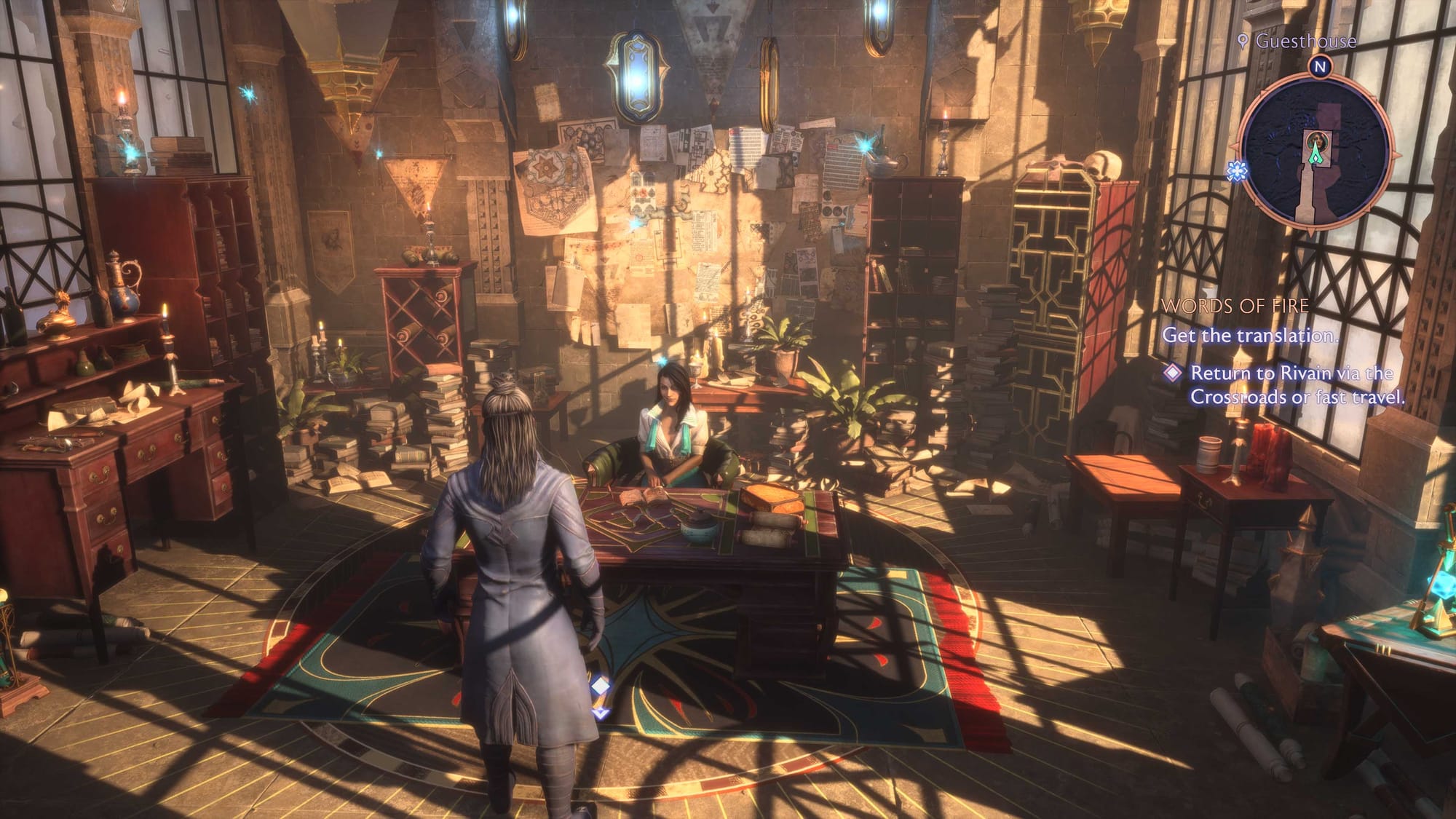
The Verdict: Should You Play Dragon Age: The Veilguard?
Dragon Age: The Veilguard is a fascinating paradox. It's simultaneously too different and too familiar, too safe and too bold, too modern and too traditional. It's a game that tries to please everyone and, predictably, has pleased no one completely.
But here's what it definitely is: A solidly crafted 50-hour fantasy adventure with memorable characters, spectacular moments, and the best accessibility options I've seen in a major RPG so far. Despite the technical end of development in January 2025 with no more content updates and no planned DLC, what's here is complete and polished.
It's perfect for you:
- You value character relationships and emotional storytelling
- You appreciate comprehensive accessibility options and laid-back gaming
- You're open to Dragon Age trying something different
- You have Game Pass and can try it risk-free
- You prefer focused level design over overwhelming open worlds
Skip it:
- You're wedded to tactical, pause-heavy combat (Checkout Baldurs Gate III)
- You want to play as a morally grey or evil character
- You can't accept the more colourful art direction
- You have limited time for longer gaming sessions
- You're expecting a new Dragon Age: Origins
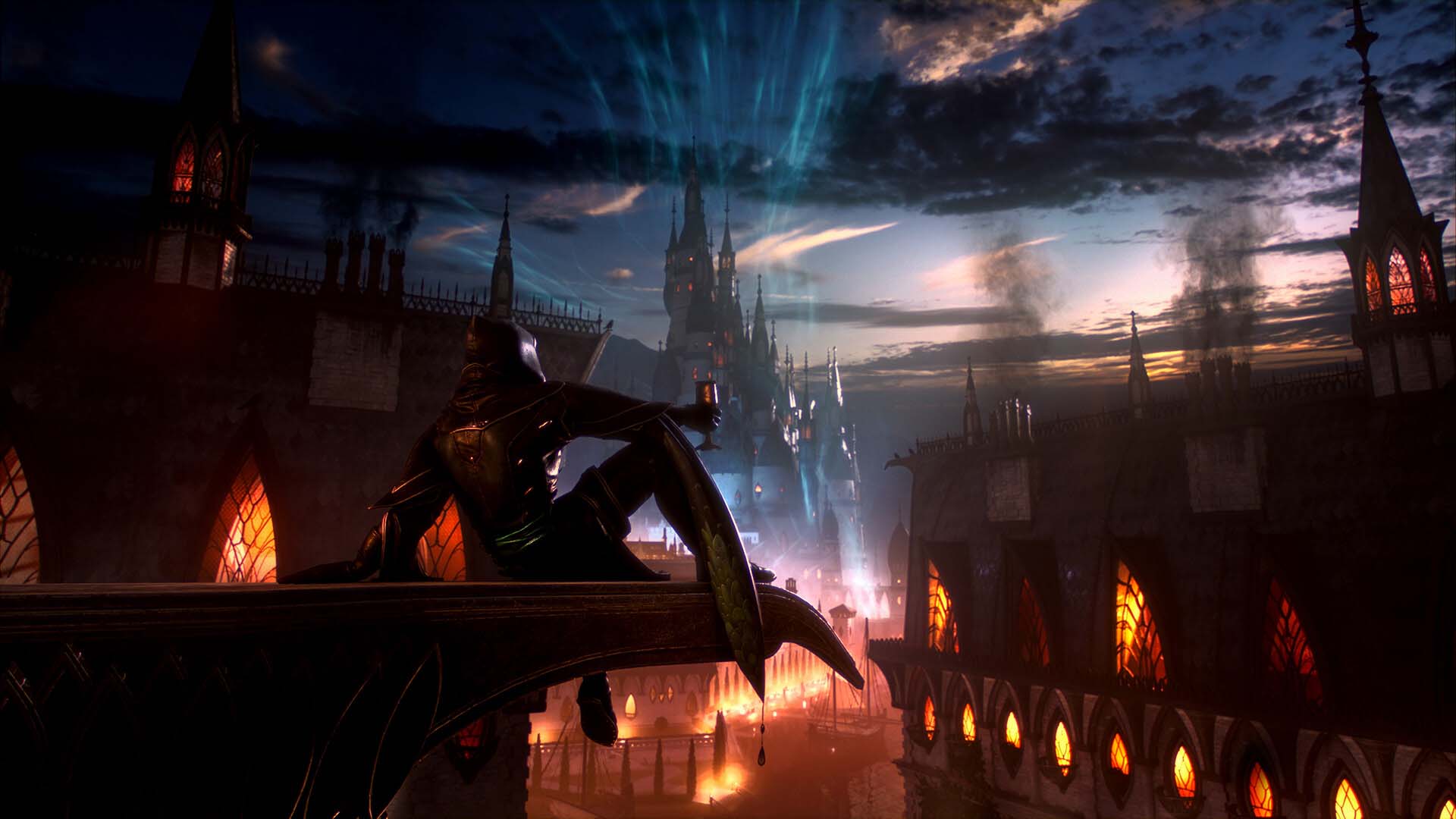
Dragon Age: The Veilguard isn't the game we waited ten years for—it's something else entirely. Whether that's better or worse depends entirely on what you're looking for.
When I adjusted my expectations and got used to the new art direction, I found an RPG that respected my fading reflexes while entertaining me for 60+ hours straight. By the end? Genuinely sad to say goodbye to these characters. I actually wanted a DLC—something I haven't felt about a game in years.
Have you played Dragon Age: The Veilguard? Share your thoughts below—especially if you've found accessibility features that made the difference for you. And remember, there's no shame in playing on Storyteller mode. We're here to have fun, not prove anything to anyone.
Platform Availability:
- PlayStation 5:
Dragon Age: The Veilguard on Amazon - Xbox Series X/S:
Dragon Age: The Veilguard on Amazon - PC (Steam/EA App):
Dragon Age: The Veilguard on Amazon
Dragon Age: The Veilguard on Loaded.com - Xbox Game Pass Ultimate/PC Game Pass: Included with EA Play (no additional cost)
Note: Physical editions available for console versions. Digital deluxe includes cosmetic items and doesn't affect gameplay.
FAQs
Do I need to play the previous Dragon Age games first?
No, though it helps. Veilguard is designed to welcome newcomers—the game explains key concepts and provides context for new players. You'll miss some emotional callbacks and deeper lore appreciation, but the story stands on its own. Think of it like watching The Hobbit without seeing the Lord of the Rings films: you'll follow the plot, but veteran fans get more out of certain moments. If you're on the fence, jump in—it's accessible enough for Dragon Age virgins.
How long does Dragon Age: The Veilguard take to finish?
The main story runs 30-40 hours if you focus on critical path missions. Add companion quests and faction content, and you're looking at 50-60 hours. Completionists hunting every memento and secret? Expect 70-90 hours. For time-poor Silver Gamers, the good news is the game respects natural stopping points—you can play in 2-3 hour chunks without feeling lost. Just don't skip companion quests entirely; they directly impact the ending.
Can I romance anyone regardless of my character's gender?
Yes. All seven companions are romanceable by any gender or race combination. BioWare confirmed they're not "playersexual" (only attracted to the player)—if you don't pursue a romance, some companions might pair off with each other instead. The romance options are mature, slow-burn affairs requiring dozens of hours to develop.
Is the combat difficult for older gamers?
It can be, but the accessibility options are extensive. You can adjust enemy damage, enable aim assist, disable death entirely, and slow combat timing. The action-heavy combat is faster than previous Dragon Age games, which might challenge aging reflexes, but the pause-and-play tactical menu lets you slow things down. Start on Storyteller difficulty (easy mode) if you're here for narrative rather than combat challenges—there's zero shame in it.
Which 3 choices carry over from Dragon Age: Inquisition?
Correct, and it frustrated longtime fans. You can customize: who your Inquisitor romanced, whether you disbanded the Inquisition, and whether you vowed to stop or save Solas. That's it. No Dragon Age Keep, no importing dozens of decisions. BioWare's explanation? Most previous choices don't impact events in northern Thedas where Veilguard is set. It's disappointing for series veterans but irrelevant if you're new to Dragon Age.


